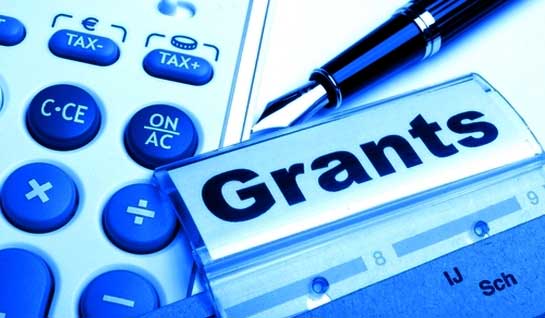June 29, 2020
Background story
Wirecard was founded in 1999, headquartered in Aschheim, Germany. It use to process payment for gambling and adult websites. With time the company grew in its size and wanted to disassociate with its questionable past which didn’t suited it’s corporate identity. They chose the path of TPAs (Third Party Acquirers). These TPAs shared a part of their processing fees with Wirecard, contributing to it’s revenue.
Asia Pacific Team
Wirecard Asia Pacific was founded in 2007 in Singapore. Wirecard Asia Pacific team was assigned to get the licence from the regulators of the Hong-Kong Monetary Authority. This licence could enable the Wirecard to process payments in the region. The regulators asked the applicant (Wirecard) to show significant business which could compel them to consider their application. The team strategized the window dressing of the books through round-tripping. In simple words, round-tripping here means moving funds from the parent company located in Germany to Asia to show that the Wirecard Asian subsidiaries are generating ideal business revenues.
Problem Partner
Some of the partners of Wirecard were non-existent.
ConePay International, incorporated in Manila, Philippine, was one of the TPAs of Wirecard. This company had contributed millions to the revenue of Wirecard Singapore’s business and was working closely with Wirecard as it’s payment processor. But when FT reporters visited the company address they found a retired seaman living with his extended family since the last 50 years. The seaman couldn’t provide much information about Wirecard or Conepay International and was rather amused of its address being used by a payment processing company. This was not just one of the cases. The FT article further states that a predecessor of ConePay, Maxcone, gave its address in 2015 which currently appears to be an abandoned shack.
The Whistle blowers
In 2015, the Financial Times (FT) started publishing articles about inconsistency in the group’s accounts of Wirecard.
Singapore, March 2018, inside Wirecard’s headquarter, the group’s own legal staff initiated investigation against three members of the finance team. Internal whistleblowers put an allegation about the plan to fraudulently transfer money to India via round-tripping.
October 2018, Whistleblowers contacted the FT authorities that the internal investigation has been squashed.
January 2019, The FT publishes its first story on the Singapore Investigation. Wirecard immediately claimed the story to be “false”. The business was back to normalcy for Wirecard.
Role of BaFin
BaFin is the financial regulatory authority for Germany.
BaFin in January 2019, starts to investigate the FT over an allegation of market manipulation.
In February, 2019, soon after the FT’s first story on Singapore’s investigation, The Singapore’s police raids the Wirecard’s office.
BaFin then puts a two-months ban on short-selling of Wirecard’s stocks, claiming Wirecard’s “importance for the economy” and the “serious threat to market confidence”, after the share price falls below €100.
In March 2019, Wirecard announces that it’ll sue the FT.
What lead KPMG to conduct special audit?
October 2019, The FT published documents indicating that profits at Wirecard units in Dublin and Dubai were fraudulently inflated. These documents contained customers list who actually do not exist. The same was brought to EY notice. To this, Wirecard replied that the documents weren’t authentic and none of its staff or executive did anything wrong.
With the growing anxiety among the shareholders and investors, the company came under pressure and was finally forced to hire KPMG to report on special investigation.
In December 2019, FT further publishes its report on Wirecard’s singular approach to counting cash. To this, Wirecard replied that a detail review of cash will be done during the audit process.
In March 2020 EY received documents that appeared to be from a trustee in the Philippines which stated that Euro 1.9 Billion to be held in accounts at two banks of the country.
Outcome of KPMG Report
The much-awaited audit report was made available on April 28th, 2020. But the findings were not conclusive. The report on page 57, stated that “there were no indications of round-tripping.” The report also says that KPMG was not provided with transaction data it requested for the years 2016 to 2018 in relation to Wirecard’s partners.
It cannot verify that arrangements responsible for “the lion’s share” of Wirecard profits reported from 2016 to 2018 were genuine, citing several “obstacles” to its work.
Bombshell Announcements
On June, 16, 2020, The two banks of Philipines, BPI & BDO, informed EY that documents detailing Euro 1.9 Billion in balances are “Spurious”.
On June 18, 2020 when Wirecard was supposed to publish audited financial statements for 2019, it announces that Euro 1.9 Billion is “missing”.
On June 18, 2020, Wirecard’s long-time auditors, Earnt & Young made an announcement and accused its client of “an elaborate and sophisticated fraud”.
Mr. Marsalek was suspended and James Freis joins as Chief Compliance Officer.
On June 19, 2020, Markus Braun resigns and just on the second day of the office, Mr. James Freis becomes the interim CEO.
On June 23, 2020, Mr. Braun gets arrested on suspicion of false accounting and market manipulation.
And on June 25, 2020 Wirecard files for insolvency.
